
Developed in partial fulfillment of doctoral studies.
- Subject:
- Early Childhood Development
- Material Type:
- Activity/Lab
- Lesson Plan
- Module
- Reading
- Unit of Study
- Author:
- Emily Hays
- Date Added:
- 01/20/2022

Developed in partial fulfillment of doctoral studies.

Este é um E-book contendo diálogos de dois personagens num passeio pelo rio Sergipe em Aracaju/SE, de Tototó. Nesse passeio os dois personagens dialogam sobre o que percebem do ambiente no percurso, como os efluentes que são despejados no rio bem como, a beleza da paisagem. O passeio se inicia no terminal dos Tototós e finaliza no Largo da Gente Sergipana e nesse local os personagens conversam sobre a importância cultural do monumento e fazem algumas observações no que concerne às questões socioambientais.

Course Objectives in alignment with CA ECSE TPEs:Unit One: Understanding the Impact of a Child's Disability on the Family Unit1.8 Understand the unique care, development, and learning needs of infants and toddlers and how to support their growth, development, and learning within the early childhood special education setting.4.5 Identify each child's strengths, preferences, and interests in collaboration with families to engage the child in active learning within and across routines, activities, and environments.
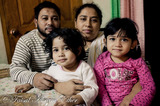
Objectives: CA ECSE TPEs1.5 Communicate effectively & in a culturally & linguistically appropriate manner with families & other service providers to facilitate & strengthen ongoing partnerships & collaborations that can support young children’s learning goals & outcomes.2.2 Promote children’s access, learning & participation in a variety of environments using models of support that are strengths- based, family-centered, and culturally & linguistically responsive.6.7 Effectively articulate the rationale for instruction and intervention plans through culturally & linguistically appropriate verbal & written communications to and with family members, other service providers, administration, & other stakeholders.

CA ECSE TPEs: 1.11 Facilitate the continuation of young children’s learning progress across multiple contexts & transitions including a variety of environments, 5.6 Use ongoing assessment data from a variety of sources & settings to establish meaningful, individualized learning goals & intervention activities, 6.2 Develop & implement policies, structures, & practices that promote shared decision making w/ service providers & families, 6.4 Develop & implement effective transitional plans to support the ongoing learning & development of children entering different learning settings, 6.5 Promote efficient & coordinated service delivery for children & families by creating & supporting the conditions for service providers & the family to work as a team, 6.8 Facilitate effective collaborative transitions between the stages of schooling & educational settings.

Este trabajo de investigación tuvo como objetivo evaluar la eficacia de los juegos libres en el desarrollo del pensamiento creativo en los estudiantes de 5 años de la Institución Educativa Nº 329 de Huancavelica. La metodología de los juegos libres ofrece una educación dinámica y activa en los estudiantes, la cual incentiva el desarrollo del pensamiento creativo en los estudiantes de 5 años, a través de un mayor sentido de seguridad y confianza en sí mismos. Esta metodología se realizó en un ambiente motivador y áreas libres, centrándose en la participación dinámica y motivadora, con el fin de fortalecer sus capacidades y habilidades, buscando que ellos desarrollen un aprendizaje autónomo. Con los resultados obtenidos se puede afirmar que los juegos libres favorecen directamente en el desarrollo del pensamiento creativo en los niños de 5 años, toda vez que t de Student con 53 grados de libertad, para muestras independientes, con una significancia del 5%, muestra un valor de 0.038 el cual es inferior al valor planteado, aceptando la hipótesis alternativa como válida.

This source is intended for pre-service teachers to learn about typical v. atypical development in children and teens and the effects of disabilities and abuse or neglect.
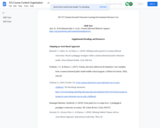
Education Trauma-Invested Classroom Learning Environments Resource List
ED 572 Trauma Informed Practices in Early Childhood
This course will immerse students in theory, research and practice around best-practices in trauma informed practices for our youngest children (birth-8years). Using an ecological systems context, participants of this course will explore the causes and consequences of traumatic experiences within the context of developmental, psychological and neurobiological processes. Students will examine the meaning of trauma within a cultural context, and examine their own personal reactions and potential bias when it comes to their work with young children and families experiencing trauma.
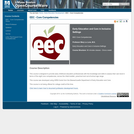
This course is designed to provide early childhood education professionals with the knowledge and skills to assess their own level in terms of the eight core competencies, across the infant-toddler, preschool and out-of-school age range. This survey course consists of eight learning modules. Each module is based on one of the eight core competencies: 1) understanding growth and development of children and youth, 2) guiding and interacting with children and youth, 3) partnering with families and communities, 4) health, safety and nutrition, 5) learning environments and curriculum, 6) observation, assessment and documentation, 7) program planning and development, and 8) professionalism and leadership. Includes Powerpoint audio lectures, syllabus, and self-assessments. This course can be used for self-documentation of professional development hours.
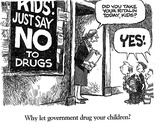
In this course learners will look at the wide spread diagnosis of ADHD among primary school aged children from the prospective of the instructors and administrators. The course will begin with researching the disorder and how to recognize its symptoms. The course will progress into medical diagnosis, medical treatments, common school accommodations, proposed alternative treatments then concluding with students researching classroom practices and discussing how practices help and hinder students with ADHD and how the proposed alternatives may be implemented to combat those common educator tactics that are perceived to hinder students with ADHD.
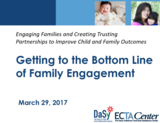
This four part web broadcast series is aimed at supporting early intervention (EI) and early childhood special education (ECSE) systems leaders with building capacity in personnel and families to develop trusting partnerships. The series features discussions of the role that data play in strengthening family-professional partnerships. Suggestions and resources for designing personnel and family development activities to support partnerships are also shared.
U.S. Department of Education funded Technical Assistance Center - resources are free for online viewing.

The significance of relationships between the parents and teachers of preschool and kindergarten children is well established. Teachers and schools are presumed to be responsible for lack of parent-teacher collaboration. Early childhood teacher education programs recognize this and offer support related to parents and families.

A cold weather and beautiful look of nature during winter time.

La presente investigación tuvo como objetivo determinar el nivel de relación entre las habilidades perceptivas y el aprendizaje de la matemática de los niños y las niñas de 5 años de una Institución Educativa de Huancavelica, en la educación remota. El diseño empleado fue el correlacional y la muestra lo conformaron 46 estudiantes de 5 años de una institución de educación inicial de Huancavelica. Los instrumentos empleados fueron, la lista de cotejo para cada variable con 30 ítems. Los resultados evidencian que existe relación estadísticamente significativa entre las habilidades perceptivas y el aprendizaje de la matemática en los estudiantes de 5 años de una institución educativa de Huancavelica, en la educación remota. Estos resultados cuantitativos, con un r=0.75, representan una correlación positiva moderada, según el cuadro de índices de correlación de Hernández, Fernández y Baptista (2018)

This is a resource for improving reading skills or habits. It is suitable for students or individuals that intends to find out steps for improving reading skills.

This is an infographic that will help your students understand how to study independently.

An article originally published in the Red Hook Star-Revue December 2013 (page 13) in response to the life of Nelson Mandela. Article is written ©Martine Bisagni/Workshop Gallery Artists Foundation. Accompanying coloring cards geared for children 4 - 8 regarding the life and legacy of Nelson Mandela. Art courtesy of ©Sindiso Nyoni. Art may not be reproduced without express written permission from WGAF and Mr. Nyoni.There are coloring cards for other years available upon request. They are to be distributed free of charge to all. martine@workshopgalleryartists.org
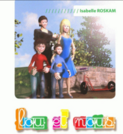
Lou is a young child presenting problem behaviors. At home, at school, or outdoors, Lou’s parents try different methods of correcting Lou’s behaviors, and evaluating their efficacy in the immediate, and longer, term.
The interactive program offers a rich simulation of situations parents and children in such circumstances might face. Whilst studiosly avoiding any suggestion of easily and universally applicable methods, the interactive program invites parents and professionals in training to reflect on the adequacy of their disciplinary and other child-rearing styles, and the impact of stress and fatigue on family functioning, related to environmental variables in their lives. The interactive program also proposes a series of « golden rules » parents and professionals in training can use as helpful guidelines and points of reference in promoting the welfare of their children and enhancing family functioning.
Use of the interactive program, which should always happen when their is professional supervision and accompaniment, by a parent, in a parental couple with or without the involvement of the child concerned, in a group of parents, or by a psychologist in training, contributes to improvement in child-rearing practices, the feeling of parental competence, co-parenting relationships, and communication with the child in question and other children who may be part of the family setting.
The interactive program’s playful and modern approach makes for an indispensable tool for psychologists and family educators working with young children with problem behavior, and their parents.
The interactive program may be used in four languages (English, French, German, and Spanish), and is accompanied by a manual in English and French describing the theoretical and empirical bases for the interactive program and its uses, as well as guidelines for using the video which are especially apt for professionals working in the educational guidance of parents and families.
Standard instructions regarding the training of students in the helping professions are also available on the interactive program. These instructions are aimed at professors in higher education in the domains of family psychology, family education, and cognitive-behavioral therapy. They permit psychologists and other professionals in training to understand how best to use the interactive program and focus its use in the broader context of their working relationships with one another and with families and children.
Lou est un jeune enfant présentant des difficultés de comportement. A la maison, à l’école ou en promenade, ses parents font des choix éducatifs et en évaluent l’efficacité immédiate et à long terme. Le programme interactif se présente comme un simulateur de situations éducatives. Sans jamais induire que l’éducation d’un enfant se réduirait à une recette universelle, il emmène parents et professionnels dans une réflexion à propos de l’adéquation des réponses éducatives en regard des comportements de l’enfant, de l’impact du stress et de la fatigue sur le fonctionnement familial, de l’importance des variables environnementales. Il propose un ensemble de « règles d’or » agissant comme des points de repère. Son utilisation par le psychologue en formation, le parent seul, en couple parental, avec ou sans leur(s) enfant(s), en groupe de parents, accompagné ou non d’un professionnel de la guidance, contribue par ailleurs à favoriser le travail thérapeutique portant sur la fonction parentale, la relation coparentale et la communication avec l’enfant. Son approche ludique en fait un outil indispensable aux psychologues et aux éducateurs familiaux travaillant auprès de jeunes enfants présentant des troubles du comportement et de leurs parents.
Le programme interactif est présenté en quatre langues (français, anglais, allemand et espagnol). Il est accompagné d’un manuel en français et en anglais donnant des indications sur ses fondements théoriques et des conseils d’utilisation à destination des professionnels de la guidance éducative.
Des consignes standardisées relatives à la formation des étudiants sont également disponibles . Elles sont destinées aux professeurs de l’enseignement supérieur et des universités dans les domaines de la psychologie de la famille, de l’éducation familiale et de la thérapie cognitivo-comportementale. Elles permettent d’orienter le travail des psychologues en formation à partir du programme interactif.
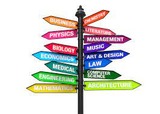
This Open Educational Resources site will complement textbooks and lectures with obvious information gaps. An extension of regular learning content. For example, you can accompany the text with multimedia materials such as videos. By presenting information in multiple formats, students can more easily learn the material being taught.

Consistent with our focus on making differences in children's lives, CYFS conducts applied research on childhood education programs, child care services, social-behavioral interventions, family relationships and family-caregiver partnerships. We position children for academic success by establishing strong connections between families and schools while striving to improve those schools by preparing and improving their teachers.